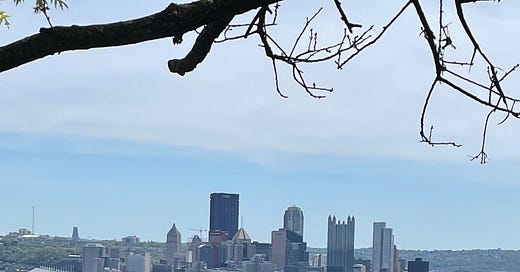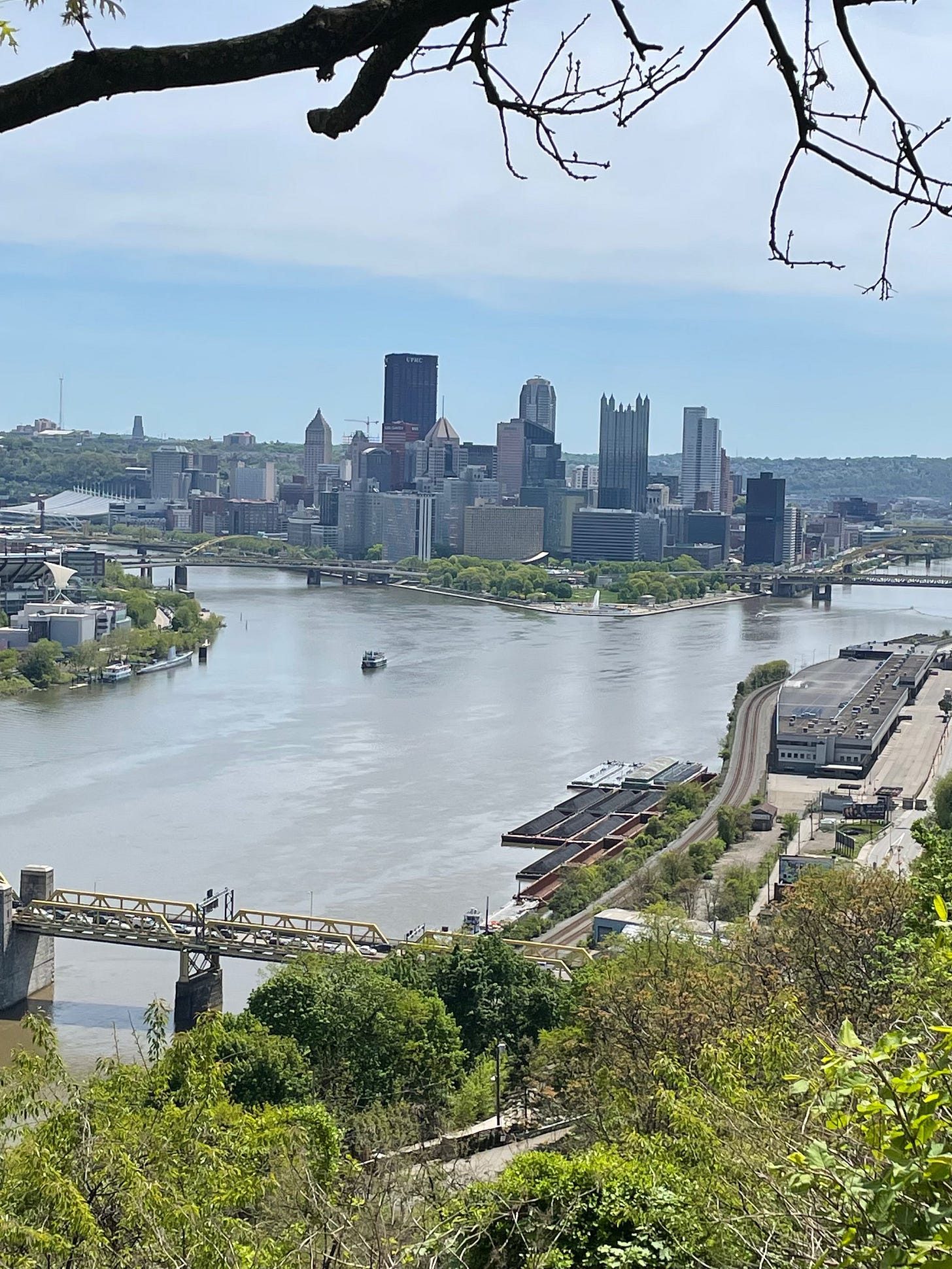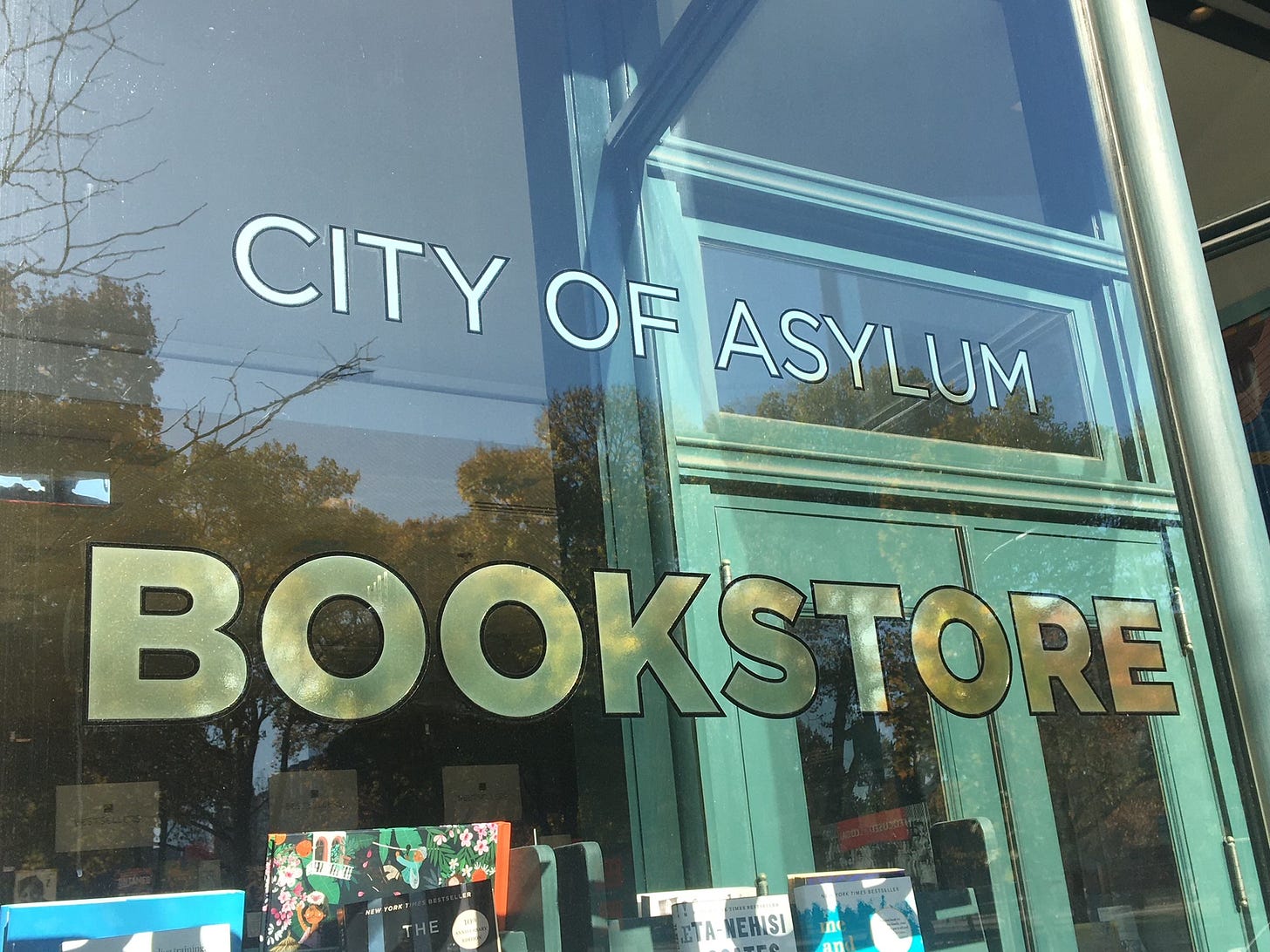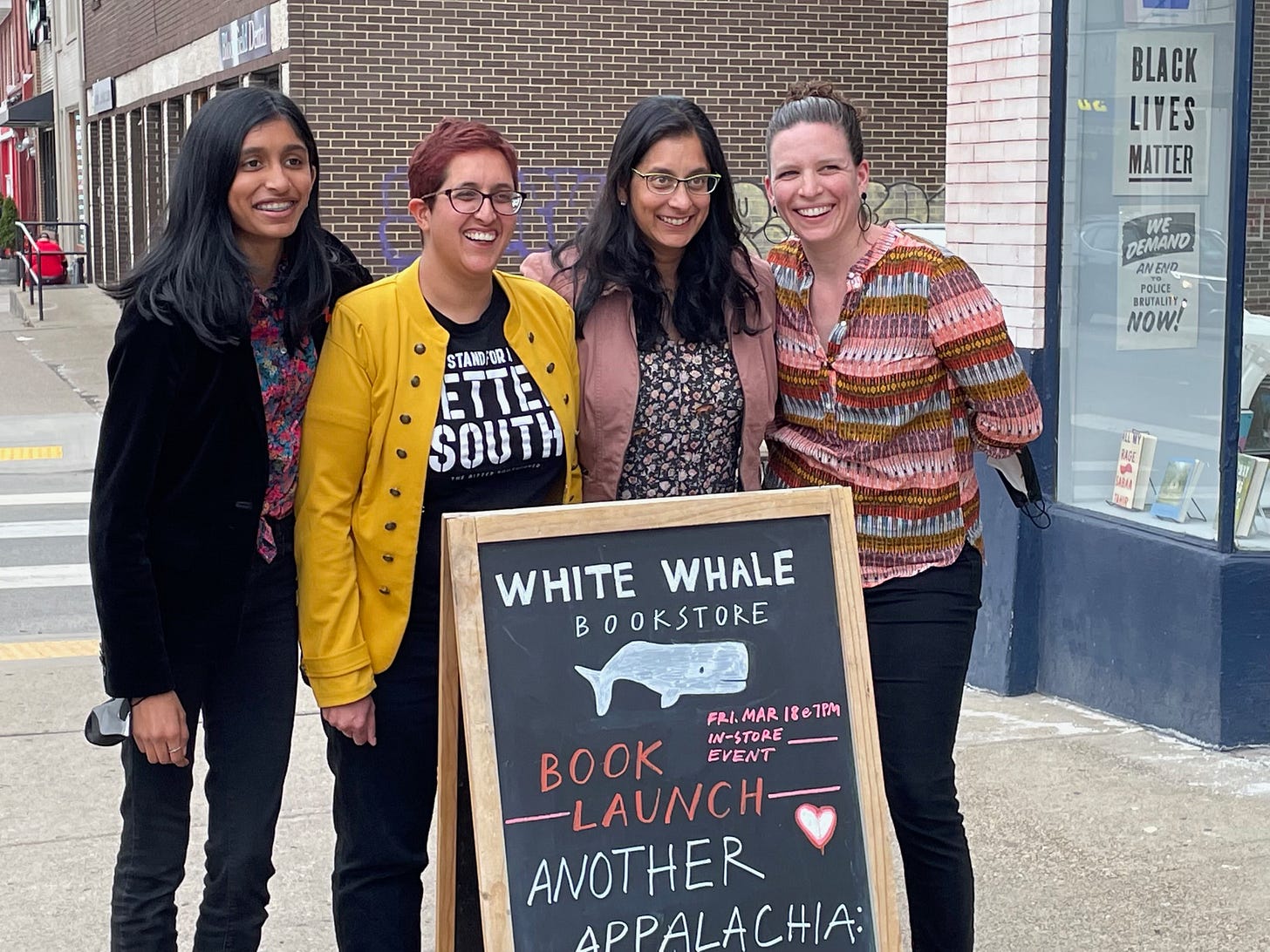When flyers recently went up around my Pittsburgh neighborhood announcing the opening of Cozy Corner Bookstore, I was pleased both that our city was gaining another bookstore and also that the news was being shared in such an informal fashion. Even better, Cozy Corner had started as a pop-up before graduating to a storefront—one part bookmobile, one part turn-of-the-century pushcart, something you’d spot in Frick Park on a sunny day—adding to its improvisational charm.
The culture of books and bookstores sometimes risks feeling stuffy. My encounter with the Cozy Corner flyer triggered a refreshing, surprising set of emotional responses, something more recognizable (I realized) from time spent around indie music scenes. This was DIY book culture, part of a special alchemy coming together in Pittsburgh.
Some thoughts about the good things happening in my city:
—I run into bookstores a lot. That means not just the brick-and-mortar storefronts that dot many of Pittsburgh’s ninety neighborhoods, but via social media, flyers, TV appearances, advertisements for bookstore partnerships with civic and philanthropic initiatives, etc. (The Pirates have included two independent bookstores as part of their between-innings small business feature, meaning bookstores show up endlessly during baseball broadcasts.) There’s a density to things that feels lively—a presence.
—The bookstores that attract attention here aren’t generally in the university neighborhood (Oakland, which houses the University of Pittsburgh and Carnegie Mellon). Pittsburgh’s success is often chalked up to “eds and meds,” and the local culture certainly owes a lot to the city’s many universities. But book culture in Pittsburgh doesn’t strike me as driven directly by higher ed, and the exciting stores are in neighborhoods like Bloomfield (our Little Italy) and the delightfully named Mexican War Streets. Book culture here feels like an urban book culture, not an extension of being a college town.
—While there’s the fledgling Greater Pittsburgh Festival of Books (just two years old), local book culture doesn’t feel dominated by a big annual event the way that, say, the Decatur Book Festival claimed bandwidth when I lived in Georgia. You’ll see books sold outdoors, but it’s just as likely to be at neighborhood scales like the Squirrel Hill night market or the sidewalk outside Big Idea Cooperative Bookstore.
—There’s diversity in bookstore ownership, including Black-owned Tiny Bookstore in the North Hills and, in Squirrel Hill, Amazing Books & Records, with its Orthodox Jewish owner. Both stores have their specialties, but attract readers from a wide range of backgrounds. I think there’s a similar dynamic at City of Asylum Bookstore, whose parent organization provides sanctuary to politically persecuted artists. The store emphasizes literature in translation but also stocks more familiar titles, creating a notably dynamic space.
—Having bookstores in different neighborhoods and with different emphases—and more than anything, having lots of bookstores—means there’s almost always a bookstore that’s open. I’ve visited Amazing Books on Christmas Day and New Year’s Day and well after dark on Saturdays, a perk of having a store with an observant owner, even for non-observant customers. And if it’s daytime on a Saturday, Riverstone Books is just across the street. In our city, there’s coverage.
—Lots of close-by authors and publishers means lots of events and, at some stores, huge walls devoted to homegrown books. White Whale is the gold standard in this regard.
I’m not sure how much of Pittsburgh’s experience is directly applicable to other places. Among other things, we benefit from cheaper rents than some larger cities, and we are, after all, the birthplace of the Carnegie library phenomenon. It’s a bookish place, cheaper than New York and a little more bustling, perhaps, than some of our Rust Belt neighbors. If there’s a single takeaway here, maybe it’s that Pittsburghers don’t go to the bookstore, and we don’t do it mostly for gifts. Varied and dynamic, Pittsburgh’s bookstore culture promotes community, flow, and discovery, and not just at the holidays or during a festival.
For a not-at-all-comprehensive list of the city’s bookstores, see this guide from Visit Pittsburgh. The newsletter from
has updates around town. And for an international perspective on bookstores, I like this city-by-city documentary series, focused on book culture in the Spanish- and Portuguese-speaking world, that my colleague Jeremy Wang-Iverson shared.








Loved this! I moved to Pittsburgh a few months ago and I have been to white whale and cozy corner. But I am very happy at the eclectic mix of bookstores that exist here.
Apologies for misspelling Jeremy's name in the initial version of this post!